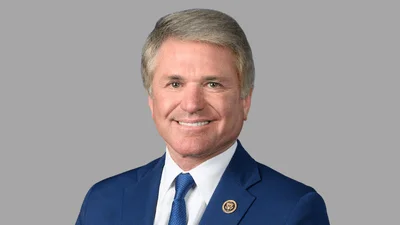Congresswoman Debbie Wasserman Schultz (D-FL), Chair of the Military Construction, Veterans Affairs, and Related Agencies Appropriations Subcommittee, delivered the following remarks at the Military Privatized Family Housing Oversight Hearing:
Today we welcome three panels to testify on the conditions and oversight of the Military Housing Privatization Initiative (MHPI).
The first panel will feature two residents telling their personal stories and challenges they and their families faced while living in privatized housing. They will be joined by a privatized housing family advocate, who will be able to speak broadly about the issues families face in privatized housing across all Services and housing providers.
The second panel will include the Deputy Assistant Secretary of Defense for Housing, Ms. Pat Coury (Core-y), and the Director of Defense Capabilities and Management at the Government Accountability Office, Ms. Elizabeth Field.
These witnesses will be able to explain the oversight and history of privatized housing, the partnerships between the providers and the government, the steps being taken to address systemic housing issues, and the future of housing resiliency.
The third panel will be representatives from five of the largest private housing companies: Balfour Beatty Communities, Corvias Military Living, Hunt Military Communities, Lendlease Communities, and Liberty Military Housing.
We expect this panel to explain current challenges privatized housing faces, past and current legal issues, steps being taken to improve service, and the impact of the recently implemented Tenant Bill of Rights.
As we all now know, beginning in August of 2018, Reuters began publishing a series of articles chronicling health and safety issues experienced by military families living in deplorable privatized military family housing conditions - not to mention the fraudulent activities being conducted by some providers.
These articles prompted a groundswell of similar stories from diverse families of all services, ranks, paygrades, and geographic locations. It became quickly apparent that these issues were systemic.
Servicemembers and their families experienced mold exposure, rodent infestations, water leaks, smells, broken appliances, rude and dismissive housing management, and adding insult to injury, there was ineffective oversight of the program by the Services.
The Department of Defense and the housing providers they had entrusted to take care of our servicemembers, and their families, had gravely failed.
The Services reported that a lack of visibility on work order processing had contributed to the overall lack of oversight.
In addition, the system incentivized work order completion without respect to the quality of maintenance performed, which led to poor workmanship and unqualified personnel performing the work.
Further, an over-emphasis on occupancy rates incentivized the quick turnover of homes, which in turn can lead to a lack of preventive maintenance and repairs between tenants.
The system was broken. Those who were bravely serving our nation, and their families, were being neglected, ignored, and taken advantage of.
Since then, Congress and the Department of Defense have taken key steps to remedy the crisis and right the ship.
Congress passed legislation as part of the 2020 National Defense Authorization Act that included a Tenant Bill of Rights - which would ensure all servicemembers and their families were given quality housing, responsive customer service, and the right to challenge the system for wrongdoing without the threat of retaliation.
In February 2020, the Department of Defense announced that the defense secretary and the uniformed service secretaries signed the Tenant Bill of Rights implementing 15 of the 18 tenant rights.
Finally, on August 1st, 2021, the Department signed the updated bill of rights, implementing all 18 rights. I was glad to see that all privatized housing partners testifying today implemented these 18 essential rights for our servicemembers and their families.
However, there is still much to be done, as we’ve seen by the continued stream of negative stories making their way to the press.
This not only includes persistent issues with inadequate housing conditions and quality of service, but also the troubling, shameful, and frankly infuriating, revelations of illegal incentive fee fraud committed by multiple providers.
I look forward to hearing some explanations today from those privatized housing providers and how they are making systemic changes in the operations and oversight of their housing portfolio, and I expect full transparency.
This is an important hearing in which we will discuss the state of military privatized housing, the progress made over the last few years, the ongoing challenges faced by our military families, and the crucial steps we must take moving forward.
I do want to thank all of the witnesses for attending today, and I am looking forward to an informative, candid conversation.
Source: U.S. Department of HCA









